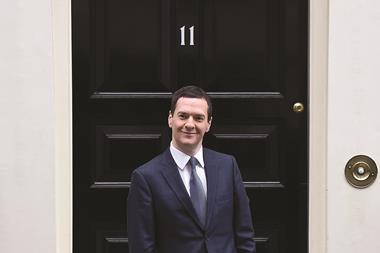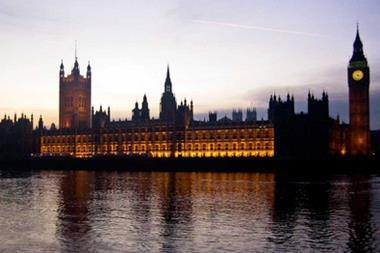English devolution has begun, and is kicking off what could be a transformative era in the way the nation is run. Not just transformative in a political sense, but potentially for the property industry too.
Property Week readers would not have been surprised by George Osborne’s announcement on Monday that Manchester was to become the first metropolitan area to benefit from new powers and a £1bn economic boost. After all, we told you four weeks ago.
We also revealed urban conurbations such as Birmingham, Bristol, Leeds, Merseyside and Newcastle were in discussion with the Treasury to get their slice of the devolution pie — and so they should be.
We are not talking about a sop to the regions here. The Manchester deal is huge. It’s as close to regional autonomy as any right-minded person could expect. It’s real power, and the industry should be delighted.
With opinion polls showing 80% of the English are in favour of power going to the regions, the pace is now sure to pick up, as it needs to if England is going to get the kind of devolution it deserves. With Scotland getting much of what it wants, and Wales and Northern Ireland in line for increased powers too, the English are becoming restless. They don’t want to be ignored.
With the general election just six months away, our main parties all have their own ideas of how devolution should work. Labour are likely to demand more local council involvement and may scrap the idea of a streamlined ‘devolution cabinet’. The deal with Manchester is the Conservative model, devised by cities minister Greg Clark. The new mayor will not report to a London-style elected assembly, but to the leader of each of Manchester’s 10 local authorities who, somewhat astonishingly, all managed to agree to the same deal.
For the Lib Dems, their long-standing love affair with proportional representation will crop up yet again when it comes to electing each mayor. However, all PR appears to achieve is the election of the least hated candidate, rather than the most liked, and that results in candidate lists full of uncontentious, homogeneous politicos. Devolution needs visionaries and we won’t get those if the least offensive candidate always wins.
Devolution will work if those leading it are decisive, have bold plans and are not hindered by political infighting. There will always be elements of this, whichever route future agreements take, but the Manchester model is the most decisive. It’s the one that will speed up planning decisions, build more homes and provide the best focal point for overseas investors. It’s not perfect, but for those metropolitan areas that have for far too long been reliant on the bread crumbs thrown from the London table, this is more than many dared to expect.
What form other deals will take depends on the result of the general election. Those wanting any kind of real devolution will be hoping for a result that keeps the Conservatives in the power mix.
Speaking of the general election, it is six months to the day before we all trot off to the polling station, and Cameron, Miliband, Clegg and dare we say Farage are all preparing their manfestos, full of promises that may or may not be delivered.
Take a look at what we believe should be uppermost in their minds when it comes to property on pages 38-40 and let us know what you think.
David Parsley, consulting editor






























No comments yet